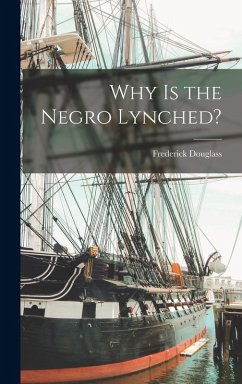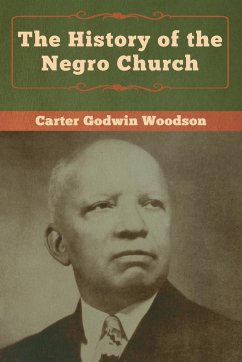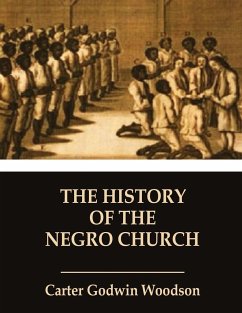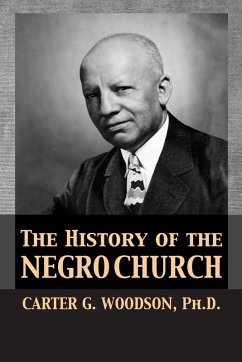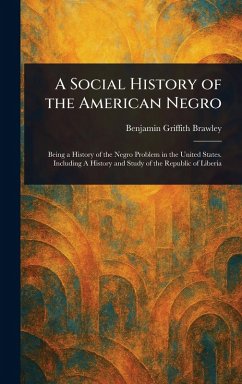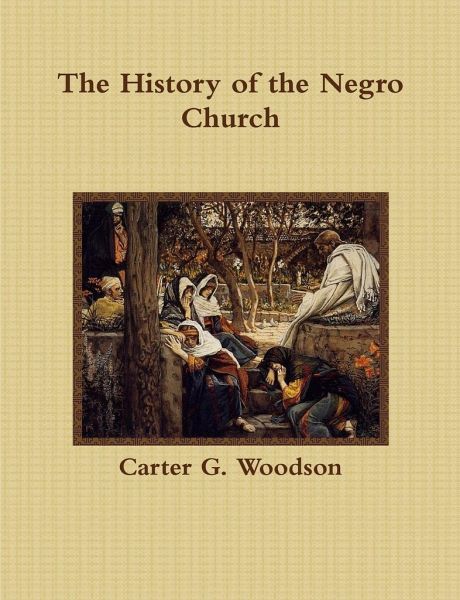
The History of the Negro Church
Versandkostenfrei!
Versandfertig in 1-2 Wochen
20,99 €
inkl. MwSt.
Weitere Ausgaben:

PAYBACK Punkte
10 °P sammeln!
ONE of the causes of the discovery of America was the translation into action of the desire of European zealots to extend the Catholic religion into other parts. Columbus, we are told, was decidedly missionary in his efforts and felt that he could not make a more significant contribution to the church than to open new fields for Christian endeavor. His final success in securing the equipment adequate to the adventure upon the high seas was to some extent determined by the Christian motives impelling the sovereigns of Spain to finance the expedition for the reason that it might afford an opport...
ONE of the causes of the discovery of America was the translation into action of the desire of European zealots to extend the Catholic religion into other parts. Columbus, we are told, was decidedly missionary in his efforts and felt that he could not make a more significant contribution to the church than to open new fields for Christian endeavor. His final success in securing the equipment adequate to the adventure upon the high seas was to some extent determined by the Christian motives impelling the sovereigns of Spain to finance the expedition for the reason that it might afford an opportunity for promoting the cause of Christ. Some of the French who came to the new world to establish their claims by further discovery and exploration, moreover, were either actuated by similar motives or welcomed the coöperation of earnest workers thus interested. The first persons proselyted by the Spanish and French missionaries were Indians. There was not any particular thought of the Negro. It may seem a little strange just now to think of persons having to be converted to faith in the possibility of the salvation of the Negro, but there were among the colonists thousands who had never considered the Negro as belonging to the pale of Christianity. Negroes had been generally designated as infidels; but, in the estimation of their self-styled superiors, they were not considered the most desirable of this class supposedly arrayed against Christianity. There were few Christians who did not look forward to the ultimate conversion of those infidels approaching the Caucasian type, but hardly any desired to make an effort in the direction of proselyting Negroes. When, however, that portion of this Latin element primarily interested in the exploitation of the Western Hemisphere failed to find in the Indians the substantial labor supply necessary to their enterprises and at the suggestion of men like las Casas imported Negroes for this purpose, the missionaries came face to face with the question as to whether this new sort of heathen should receive the same consideration as that given the Indians. Because of the unwritten law that a Christian could not be held a slave, the exploiting class opposed any such proselyting; for, should the slaves be liberated upon being converted, their plans for development would fail for lack of a labor supply subject to their orders as bondmen. The sovereigns of Europe, once inclined to adopt a sort of humanitarian policy toward the Negroes, at first objected to their importation into the new world; and when under the pressure of the interests of the various countries they yielded on this point, it was stipulated that such slaves should have first embraced Christianity. Later, when further concessions to the capitalists were necessary, it was provided in the royal decrees of Spain and of France that Africans enslaved in America should merely be early indoctrinated in the principles of the Christian religion.




